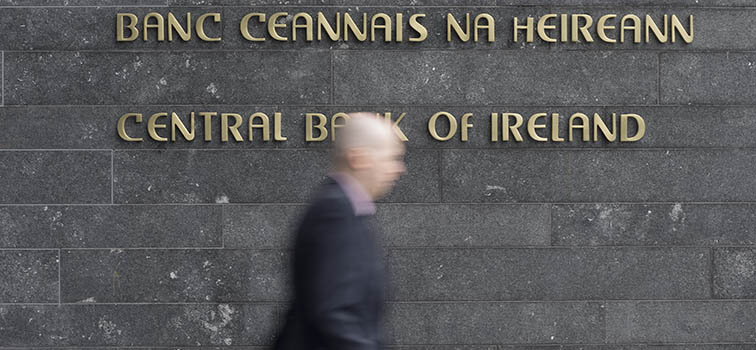‘The efforts of the banks, the legislators, and the supervisors have been effective, but there continues to be much to be done’
14 March 2017
Press Release

- Central Bank’s perspectives on the current banking landscape and its supervisory priorities outlined.
- Reflected that banks have made significant progress but need to do more to better align profit motives with economic and societal functions they serve.
- Highlights concerns regarding IT risk as a particular challenges for the sector.
Read the full speech
The Director of Credit Institutions Supervision, Ed Sibley, spoke today (14 March 2017) to the Association of Compliance Officers in Ireland. His comments looked at the current banking landscape and the core work of banking supervisors and compliance officers in safeguarding financial stability and protecting consumers.
On the financial strength of the domestically focused banks he said, “It is clear that very material, tangible and quantitative progress has been made” in improving the capital and funding position of the firms over the last 10 years. However, issues, he remarked, clearly remain, “Domestically owned banks are still rebuilding their capital bases, still have significant state ownership, and their balance sheets still have significant weaknesses and, therefore, remain vulnerable to shocks.”
Regarding the internationally focused banks operating in Ireland, he highlighted the changing nature of the sector, the increased intensity of supervisory engagement and the need for enhancements in governance and risk management. He noted that: the governance and risk management frameworks are not always at the level of the licensed bank - evidencing an unsatisfactorily addressed tension between licensed entity, geographic footprint, business lines and governance arrangements.”
In his first speech of 2017, he remarked that “the efforts of the banks, the legislators, and the supervisors have been effective, but there continues to be much to be done.... The restoration of the banking system is partially complete, the building is protected from the elements but I am not convinced it is storm proof.”
On Brexit he said “Together with our colleagues in Frankfurt and in other Central Banks and regulators we are working hard to ensure that there is a consistency of regulatory approach across Europe, and that there is no regulatory race to the bottom in the search for the crumbs of comfort that are falling from the Brexit plate.”
Mr Sibley highlighted IT risk as being of particular ongoing concern as there are still "far too many issues and risks with the technology in use today". He said “Threats abound and are increasing in complexity and the potential impacts are massive - and could impact on the banking system's ability to deliver its core functions.” On fintech he observed that the Central Bank’s own frameworks (consumer, prudential, and financial stability) must be open to change, as the geometry of the regulatory perimeter changes.
He concluded by saying that “We need to be alive to the disruptions that are coming, to be flexible and adaptive and recognise that successful implementation of new technologies can drive significant efficiencies and more robustness.” He committed to continuing an intrusive model of regulatory supervision, with supervisors continuing to pick up both old stones and new ones in order to improve the resilience, governance and risk management in the banks operating in Ireland today.